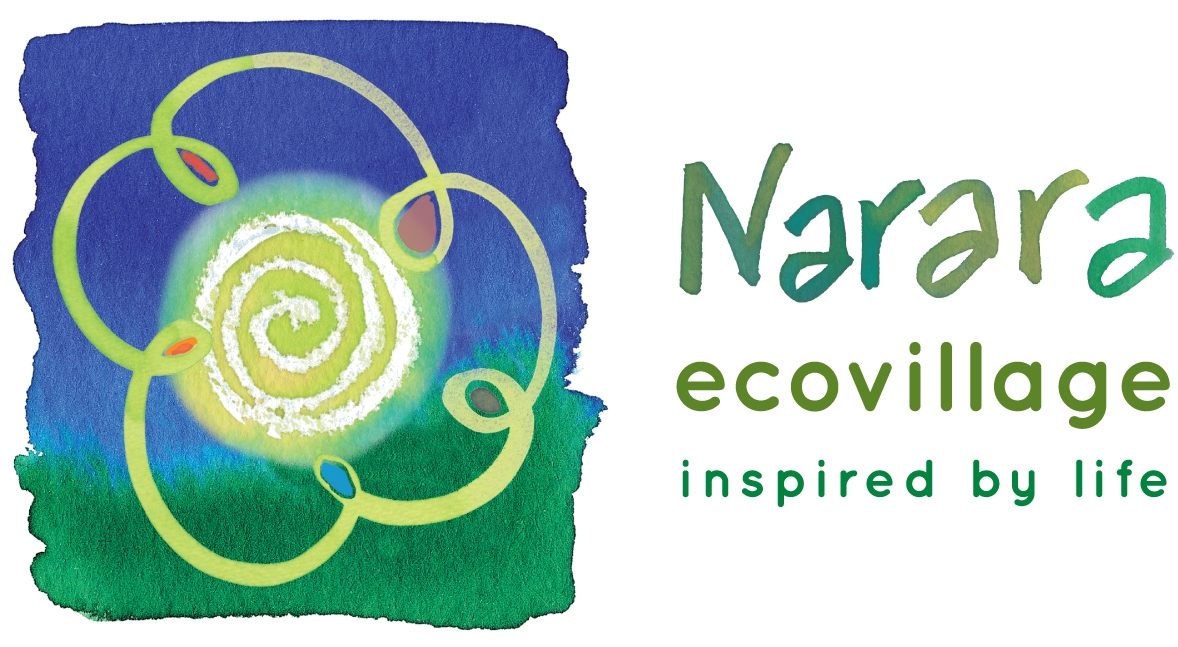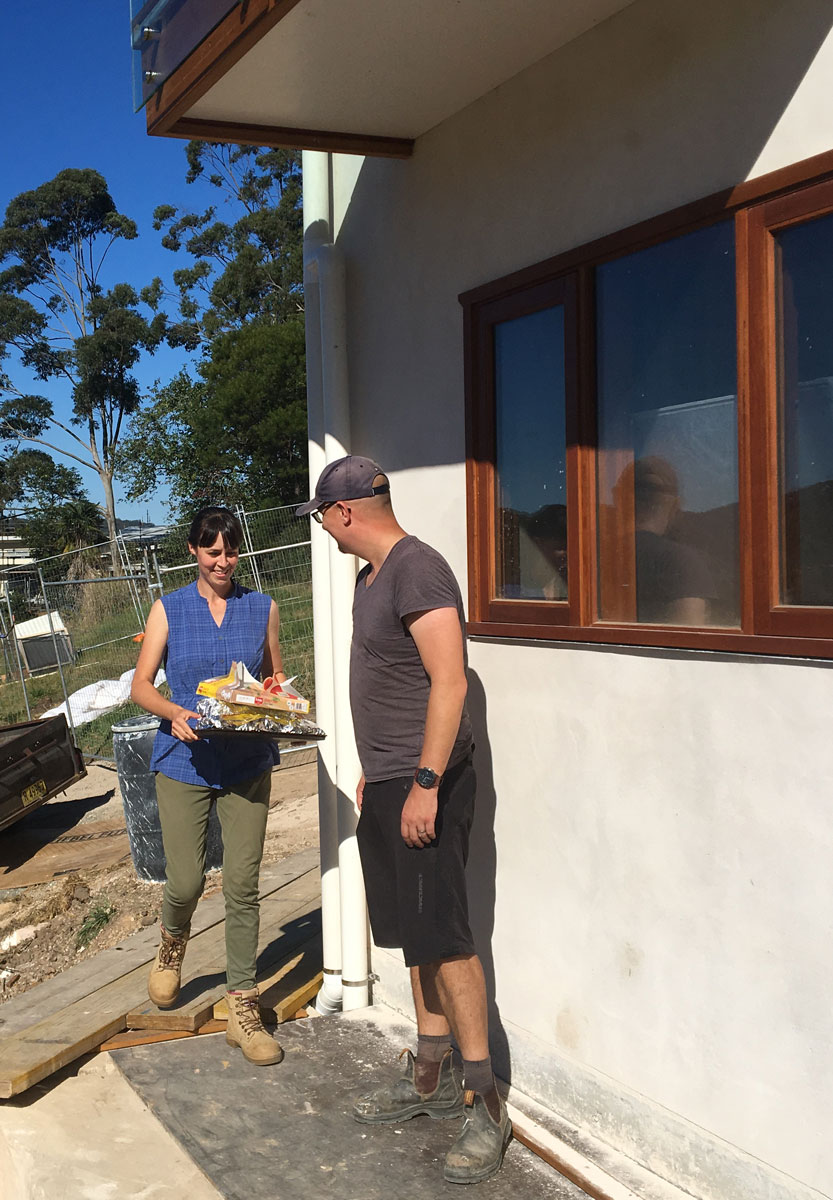
The climate emergency and its impact on all life on the planet runs parallel with a crisis of disconnection between individuals, families and nations. Ironically the human groups with the greatest control over the resources of the world are also facing the highest levels of loneliness and mental illness, violence and rocketing rates of self-harm.
For most of known history, humans have lived in family or tribal collectives bound by lineage and the need to work together for survival. Connection with place and the passing down of stories and rituals wove the social fabric together strongly.
The appeal of a contemporary ecovillage is the informed consciousness with which ‘community’ is constructed – or re-constructed. It resonates with a longing to belong: for connectedness with a compatible, consistent and trusted group of people combined with a sense of ‘home’.
Building a resilient community from scratch is not simple. Lyndall Parris, the founder of Narara Ecovillage, proudly declares that “our community was built before our houses.” This is true. The foundations of building community were laid a decade before any ground was broken at Narara. A committed group of pioneers gathered around the dream; they built knowledge of and trust in one another before any physical infrastructure was planned.
Drawing on research into successful communities this group chose to build an organisational structure based on the principles of transparency, effectiveness and all members having a voice. These reflect our aim to be ‘friendly and caring’ and are core to Sociocracy – the governance approach now being implemented in ecovillage developments all around the world, in particular those without the dogma associated with religious or other ideologies.
In this system of interlinked groups (or circles), input is offered by many and an elected circle is given responsibility for making decisions around specific aspects of community life. Agreement is reached by consent, rather than consensus, as being ‘good enough for now’ and ‘safe enough to try’. Those decisions will also be in alignment with the agreed Vision, Mission and Aim of the ecovillage. There is no illusion that perfection is possible and the space for learning and improvement is always open.
Direct personal connections are formed and strengthened in all kinds of ways which echo the ethos of collaboration underpinning Sociocracy. A group of circles within the Community domain give relationship development equivalent status to economic and environmental sustainability.
Relational intelligence is now being seen as critical to long-term success in ecovillage communities and the Project Director, John Talbott, also often reminds members, “If it is not fun, it is not sustainable”. With someone curious about ecovillage membership, personal engagement starts from the first contact, be that through serendipity or social media, a web site or a site visit. Next steps might go no farther than a regular update through the Network newsletter or the path might lead to a lifelong commitment to join the project through membership of the Narara Ecovillage Cooperative.
The decision to make this commitment might be reached after someone explore a wide range of community experiences. This might include casual conversations with members, fact-finding meetings on legal and financial issues, hands-on working on a project, observing circle meetings, sharing community meals, camping overnight, helping out with events and exploring ideas or concerns with a ‘buddy’ of like mind from within the community.

